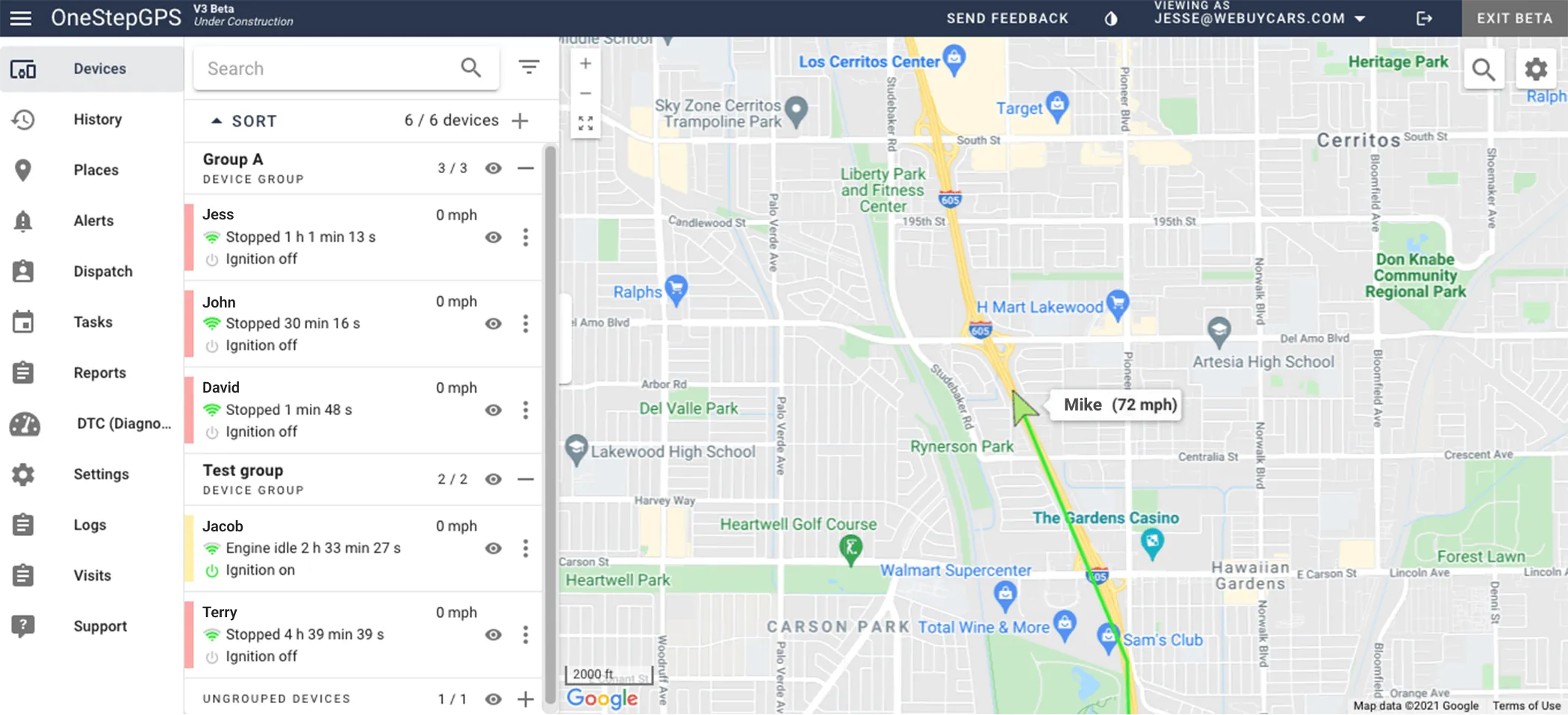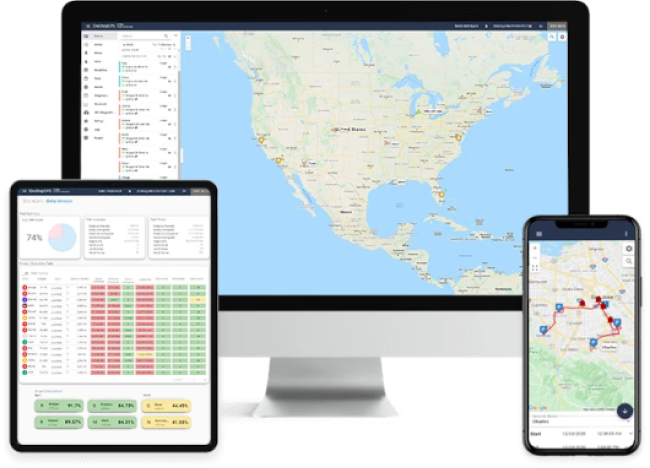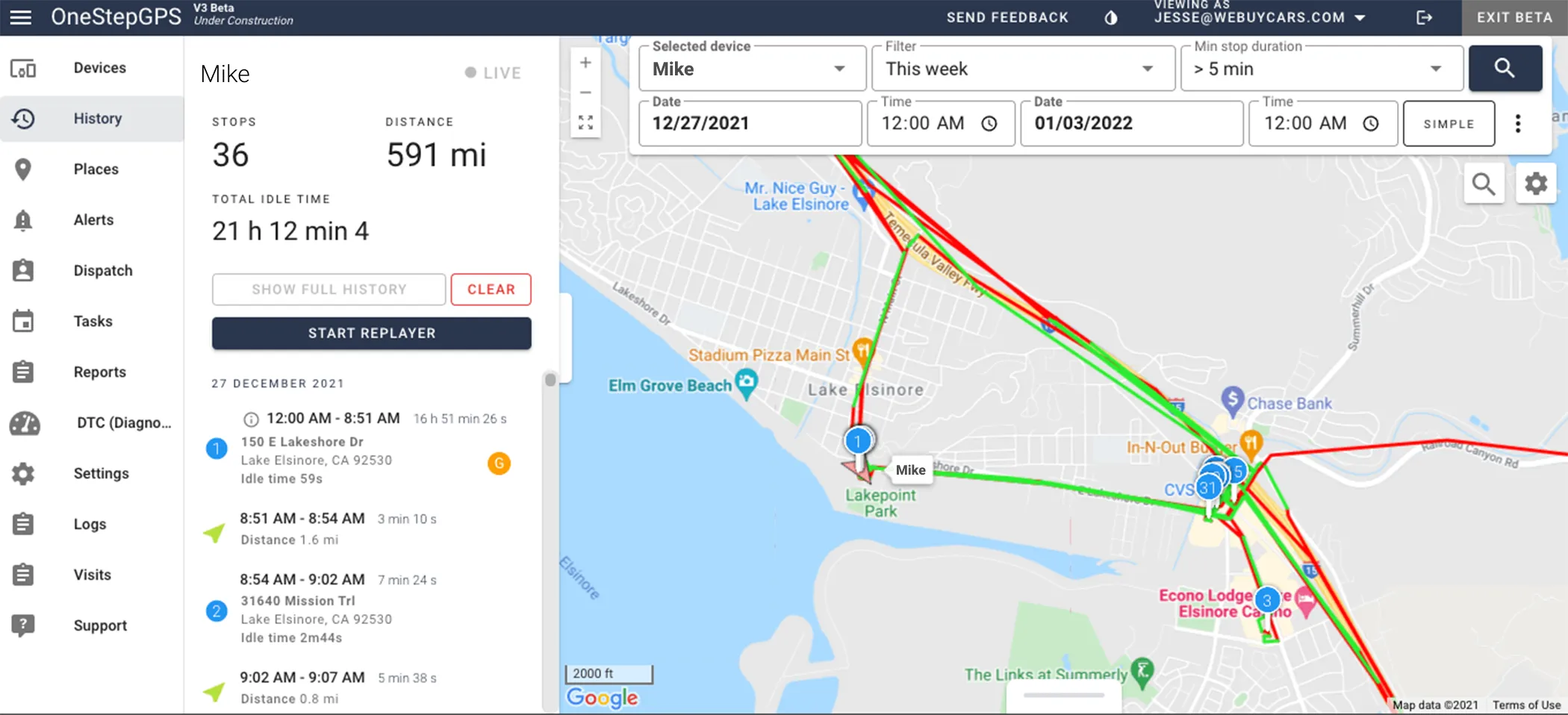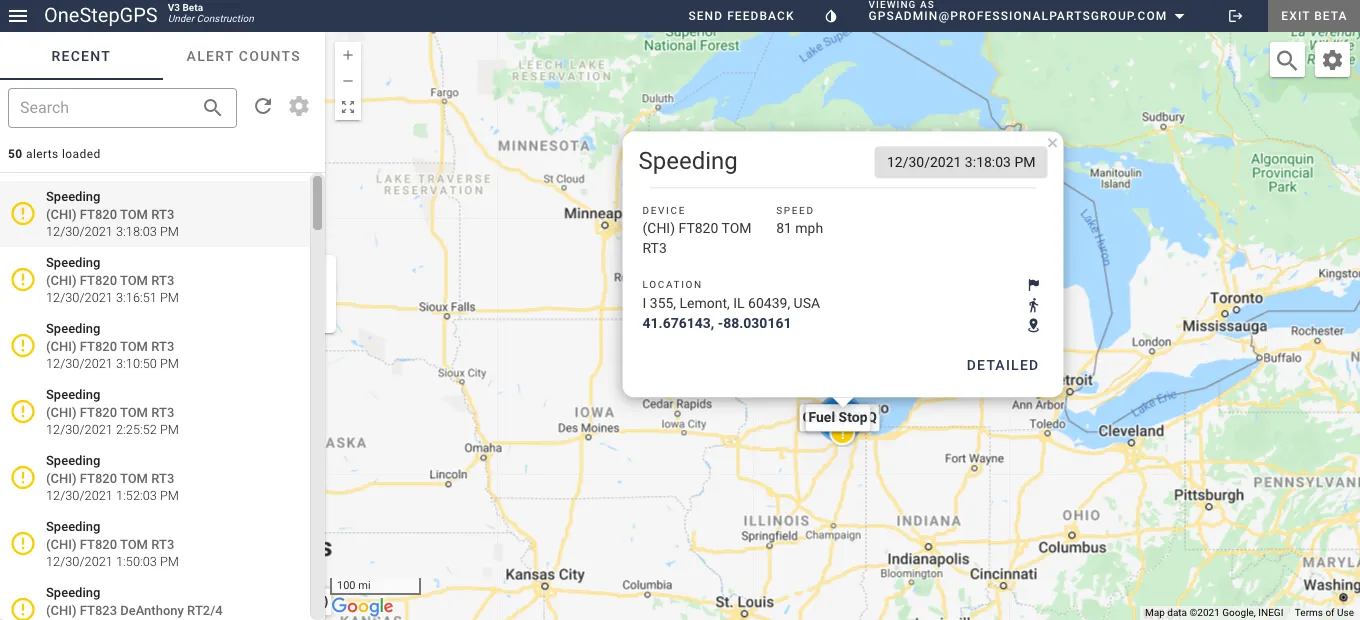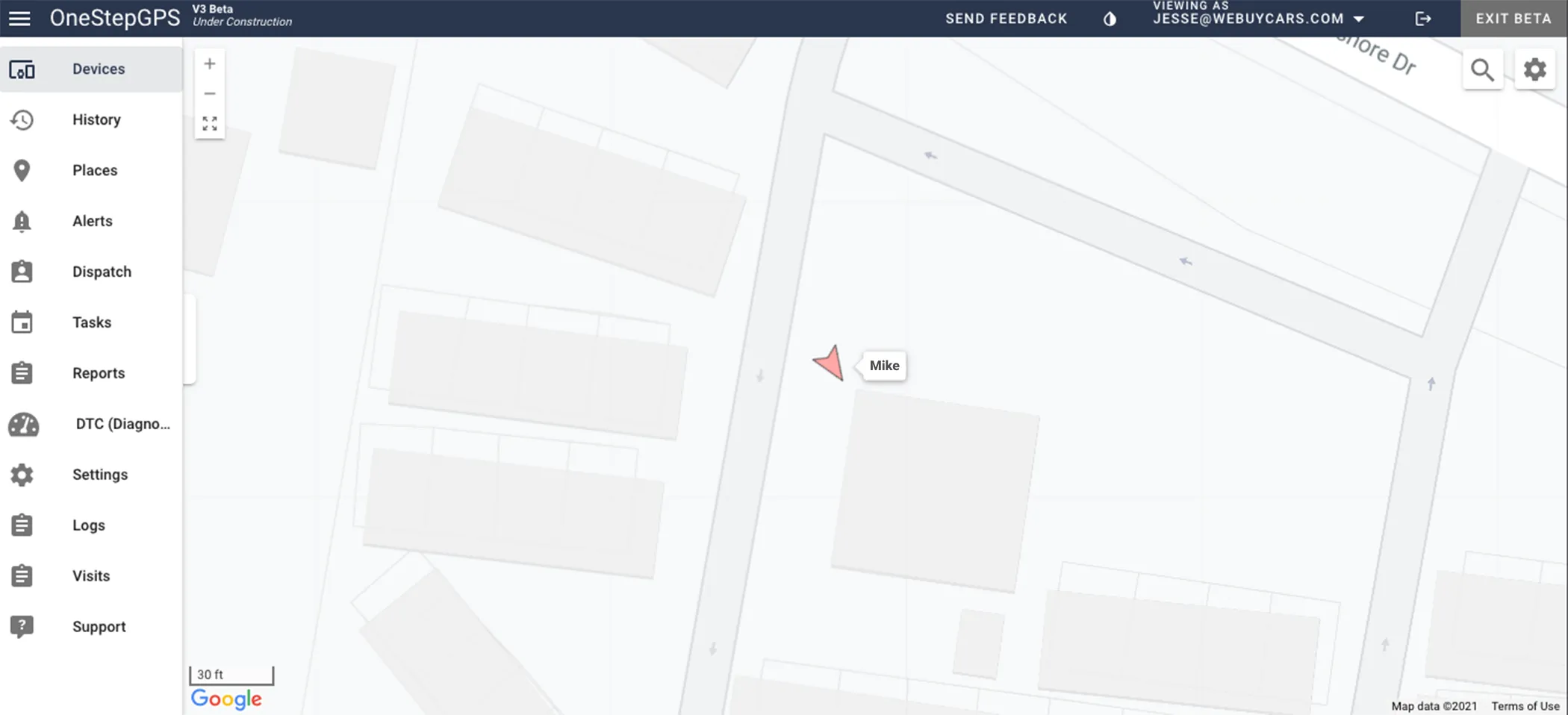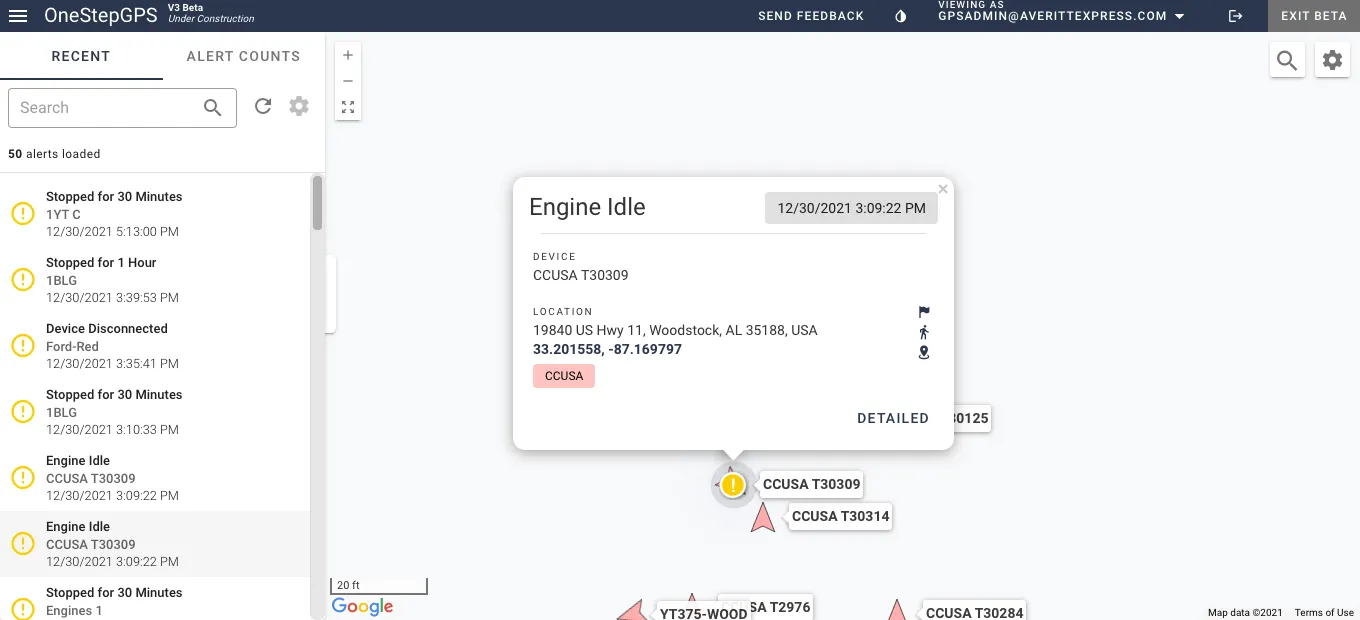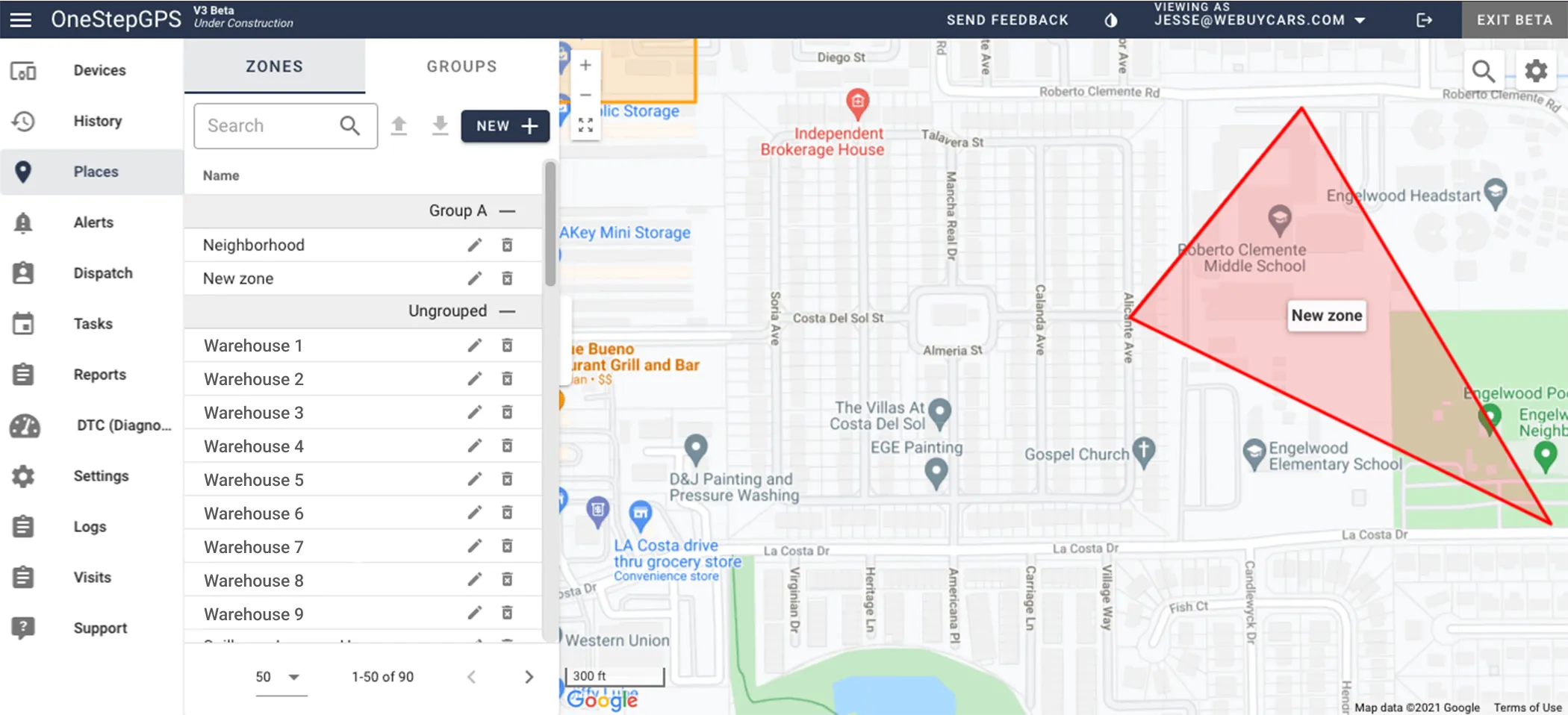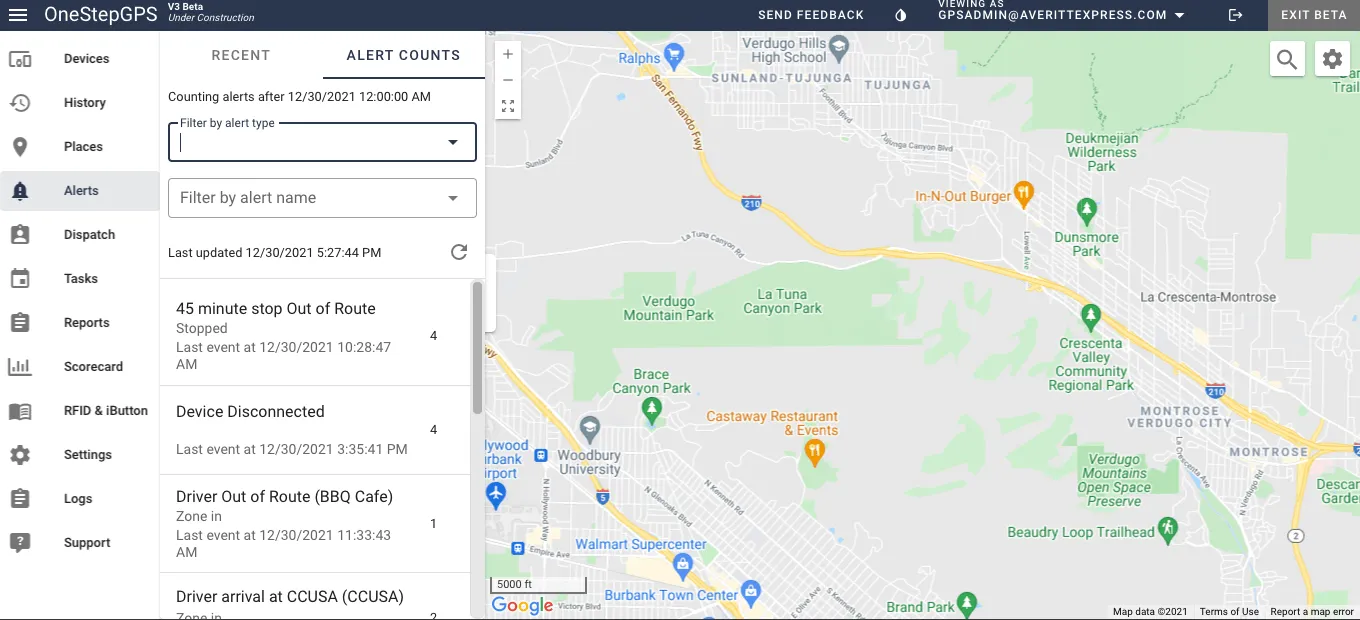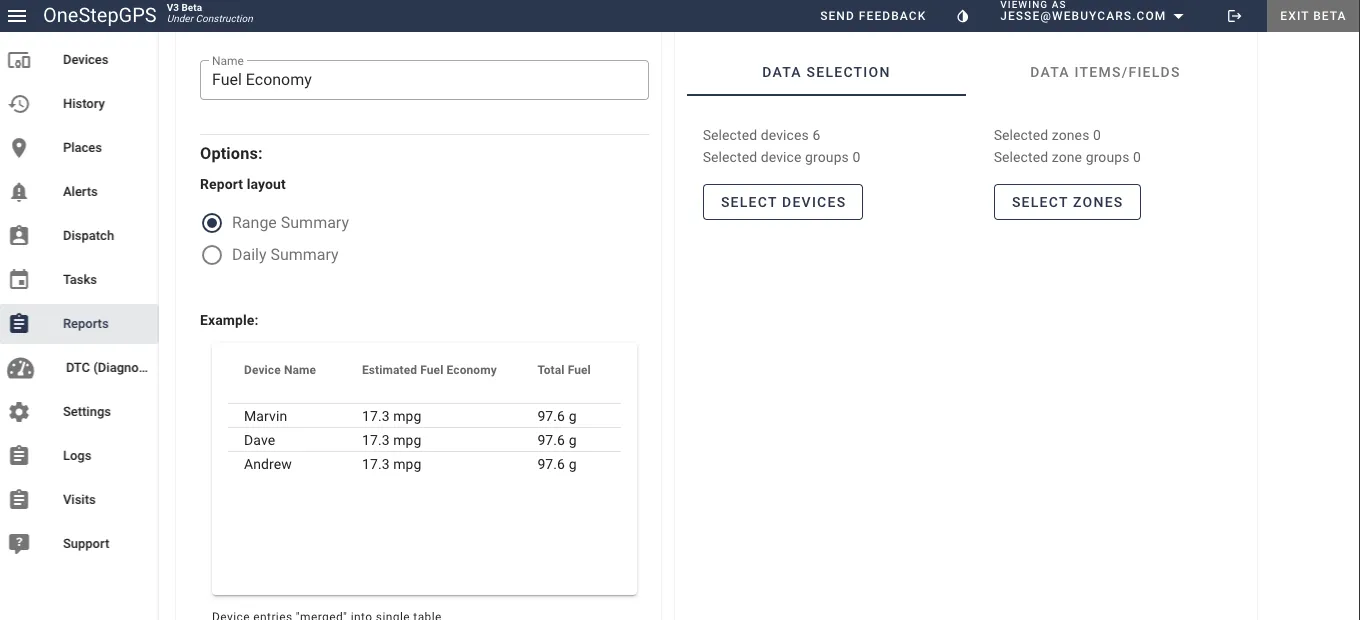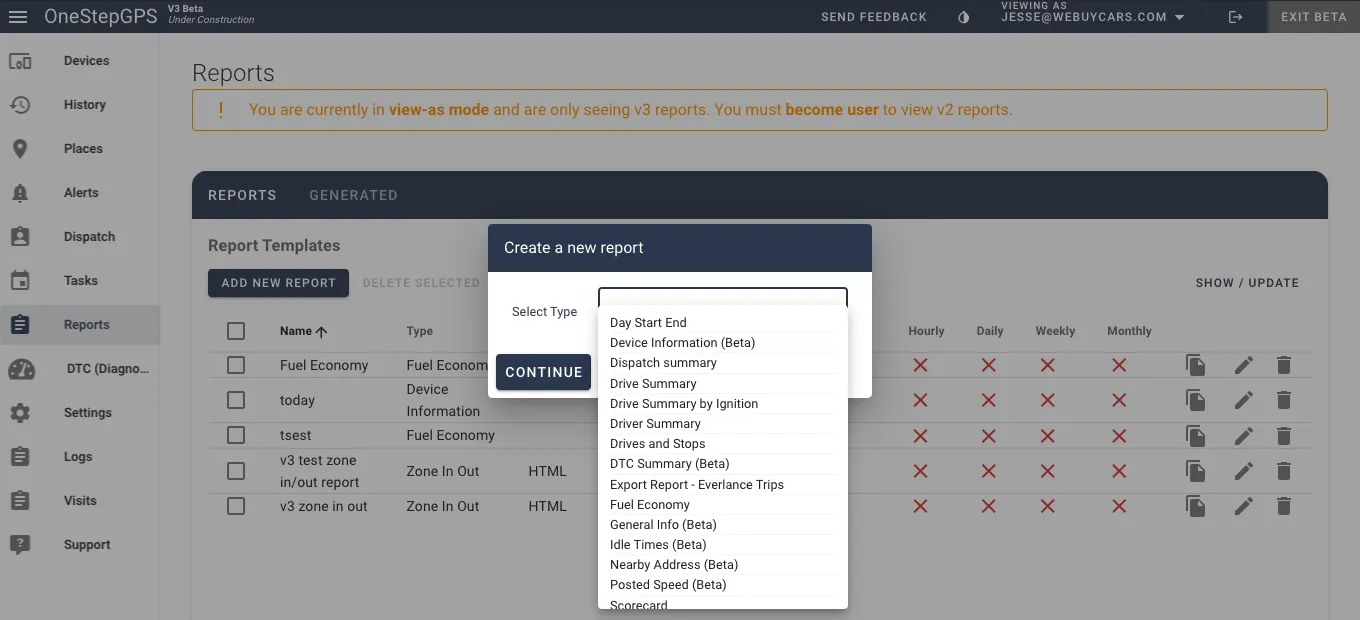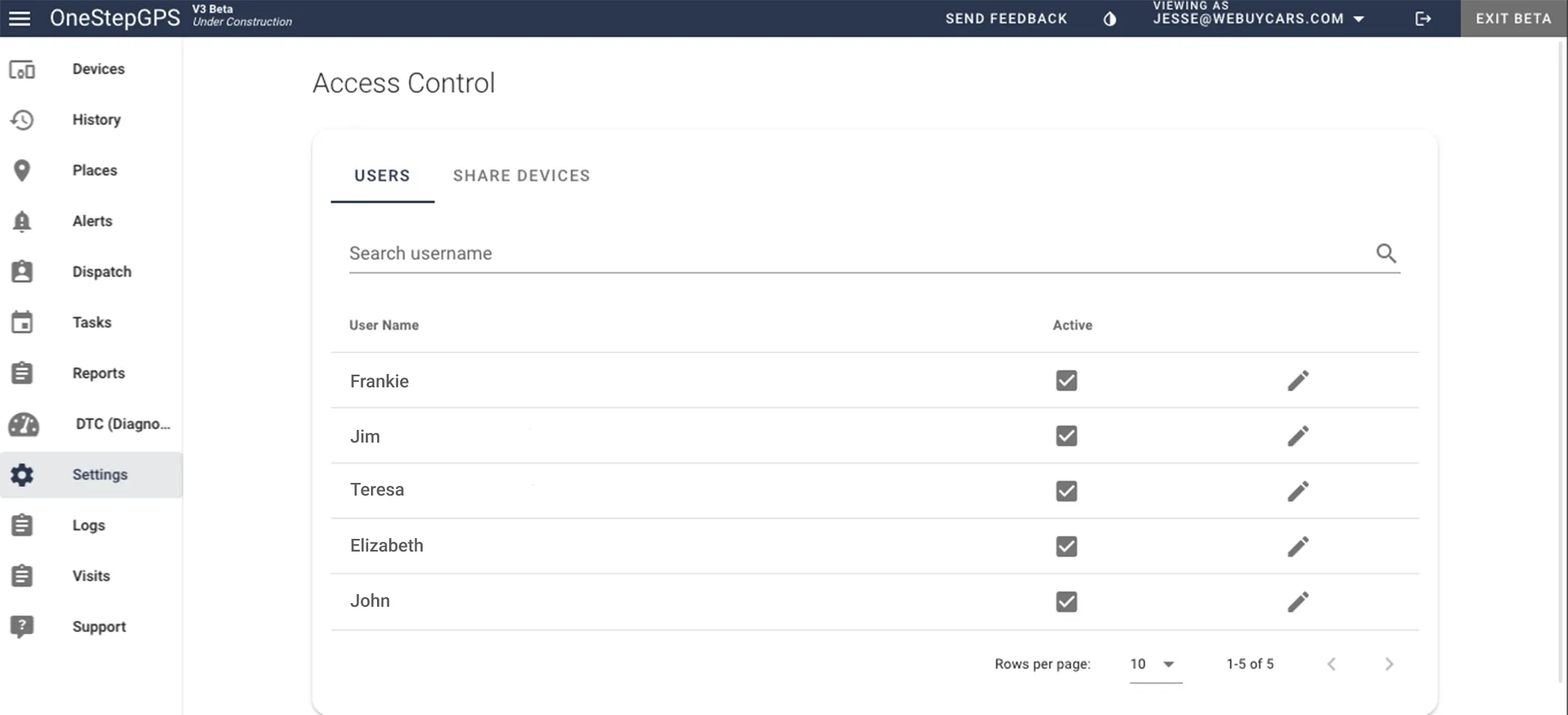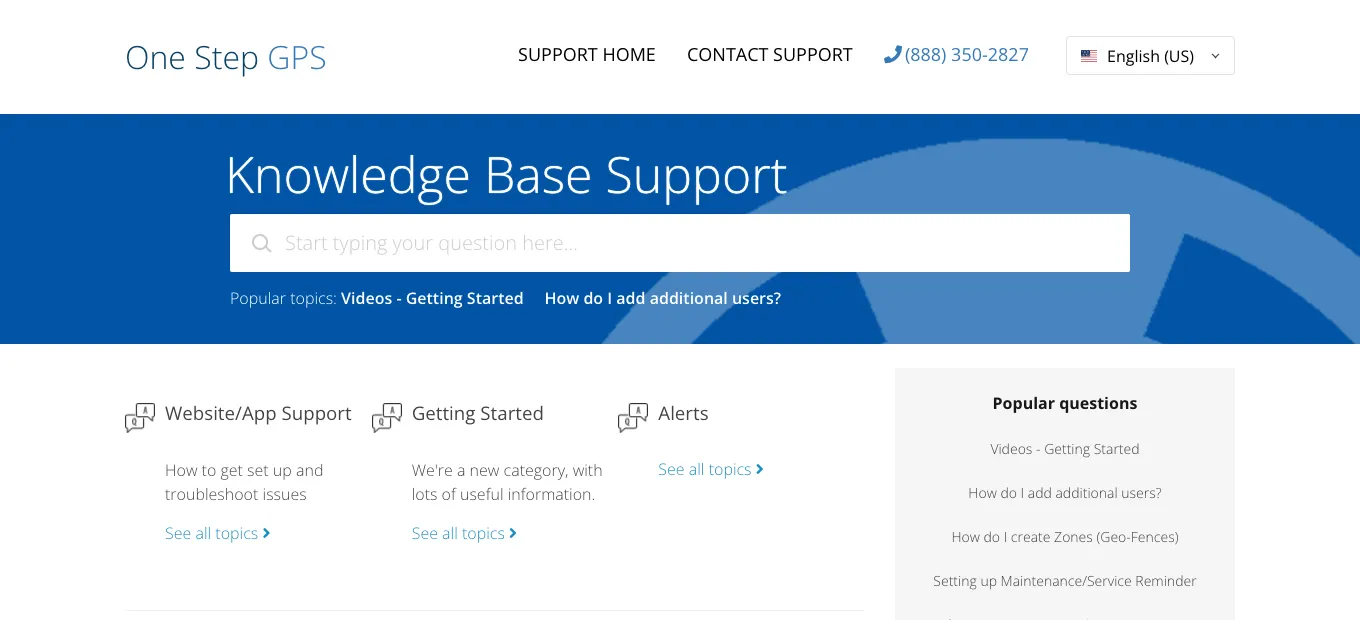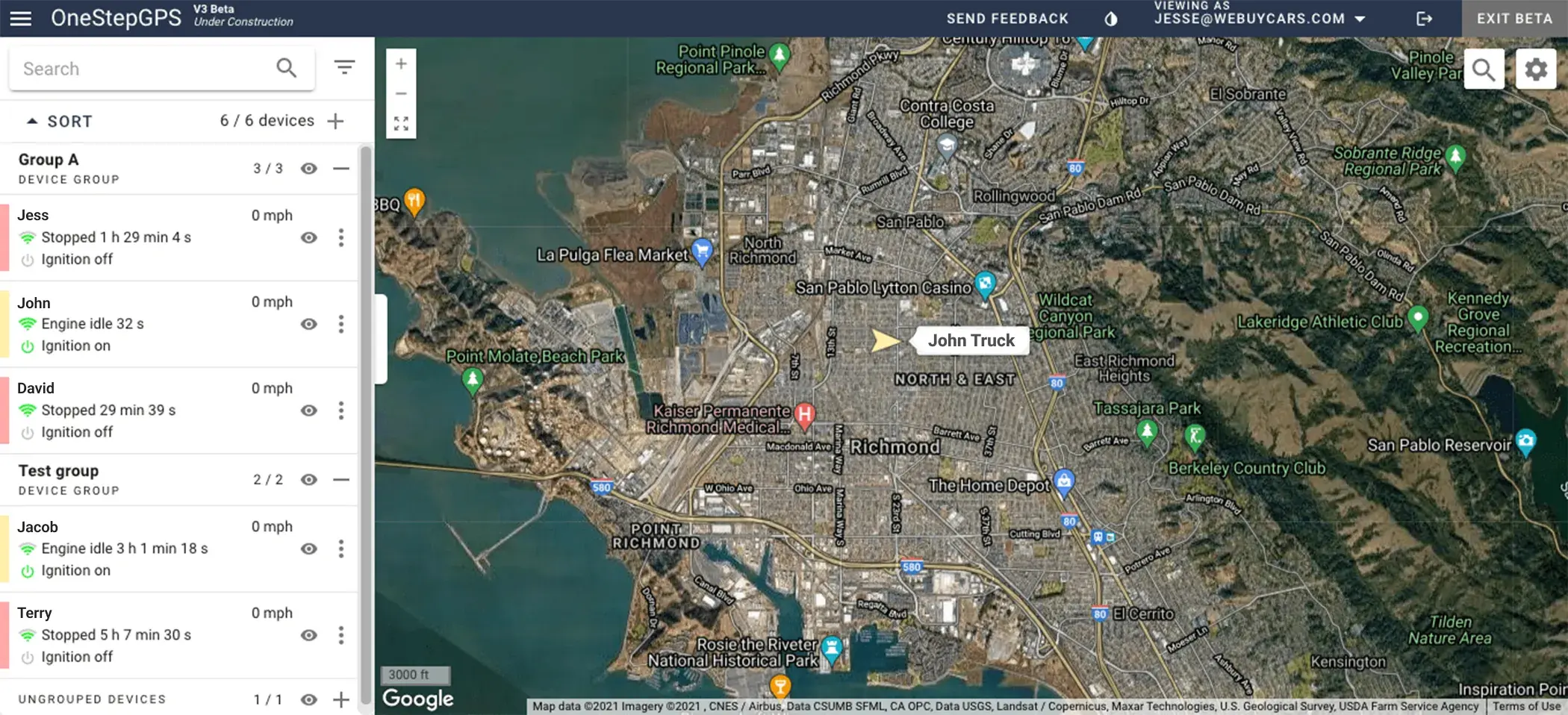If you have any questions or need Support, email us at support@onestepgps.com
and we will get back to you on Tuesday.
Rated best in customer service
Real-time GPS tracking
no contracts
Over 20,000 fleets trust

Why Fleets choose us
5%
of Fortune 100 companies trust One Step GPS17M
alerts generated annually20K
fleets protect their drivers with One Step GPS5.5B
miles tracked per yearThe industry leader
One Step GPS was the fastest growing GPS company on the entire 
And #199 out of all the companies who placed. Find out why so many customers choose One Step GPS.
 Built for security SOC 2 Type II compliantWe go to rigorous lengths to guarantee your data is kept secure.
Built for security SOC 2 Type II compliantWe go to rigorous lengths to guarantee your data is kept secure.Trusted by over 20,000 companies
GPS tracking with all the best features
Learn how fleet managers everywhere transform their approach and increase productivity, safety and smoothness of operation.
Why use GPS fleet tracking
With our GPS fleet tracking system, you no longer need to call drivers to find out where they are or worry if they are where they are supposed to be. You can easily provide evidence to a customer that a driver was actually there. Our web-based GPS tracking software allows you to easily follow your vehicles turn by turn, gauge how long they have stopped at a particular location, and view past travel history.
New to GPS fleet tracking?
Request a guided tour of how it works and get all of your questions answered:- How much does it cost to get started?
- When will I see ROI?
- How easy is it to learn the software?
- Will it integrate with my current solutions?
Switching from an existing provider?
Compare our solutions with your existing tracking software and discover:- The best customer service in the industry
- Why One Step GPS is the tracking solution of choice for more than 20,000 companies
- Superior solutions, safety and savings
Some popular hardware options
With many different gps truck tracking & vehicle tracking options available, you'll easily find one to suit your specific requirements. All of our gps tracking solutions are backed by our Lifetime Device Warranty. Many custom trackers and configurations available. Call or chat to learn more about fleet tracking solutions that will work just right for your needs.
Asset Trackers
Learn more about asset trackingSolar Tracker
Battery-only Tracker
Rechargeable battery Tracker
Easy integration with your favorite platforms
Discover our IntegrationsOne Step GPS lets you connect to other systems to get more out of both of them. Here are a few of our integrations.
Frequently Asked Questions
- Reduced fuel expenses resulting from many different reasons.
- Fewer accidents / Lower insurance rates & increased discounts.
- Improved employee productivity.
- Cut down on regular and overtime wages for the same amount or more work.
- Improved maintenance costs with fewer miles, wear and tear and maintenance expenditure.
We're changing the industry
One Step GPS was founded to provide an affordable, high-quality solution to GPS fleet tracking services with no contracts, cancellation fees or equipment costs.
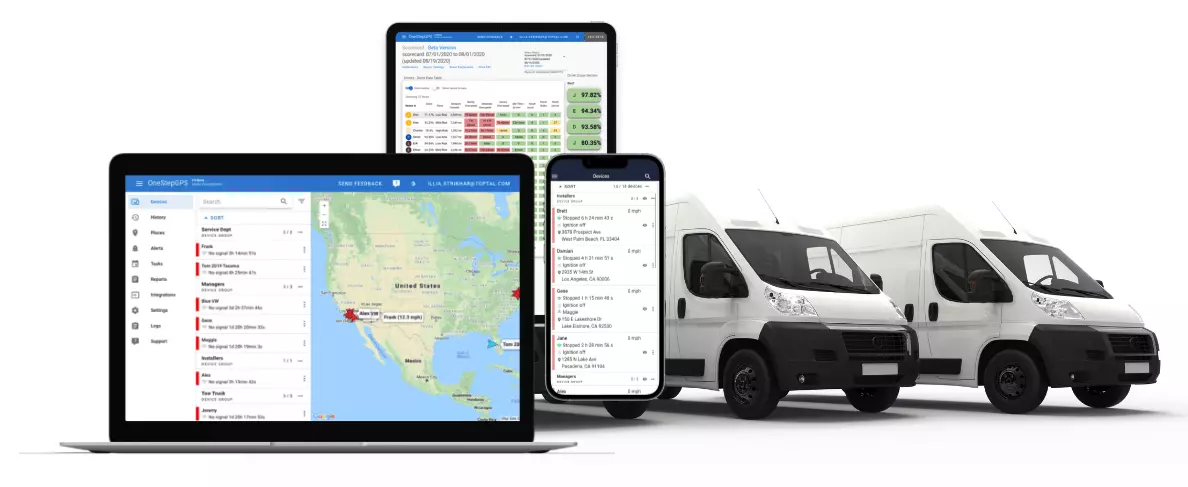
What makes us different
Making fleet safety a reality
Our cutting-edge technology in onboard camera systems and real-time GPS tracking are not only nice to have, they lay the groundwork for a truly effective fleet safety program.
With real-time incident monitoring, we empower your fleet managers to identify poor driving habits and correct them before they lead to costly citations, wasted fuel, and accidents. Below are the average results after implementation:
23%
reduction in unsafe driving incidents30%
reduction in speeding events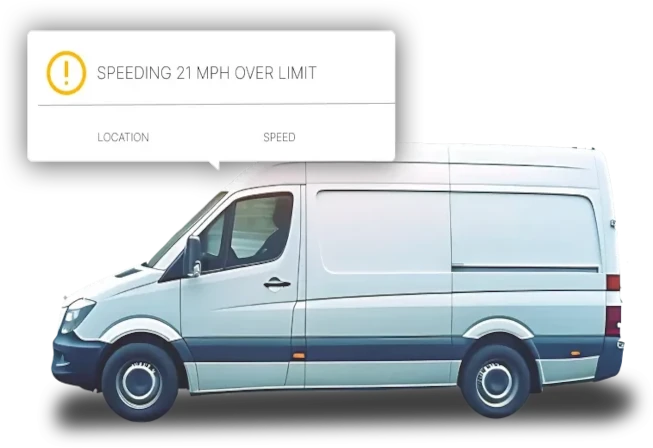
20%
reduction in hard braking events38%
reduction in number of accidentsOur customers ❤️ us
Still not convinced that One Step GPS is the best GPS fleet tracking solution on the market? Read what our customers are saying about us.


20,000+ fleets trust One Step GPS!
 Very easy to install and setup so easy to track company trucks.
Very easy to install and setup so easy to track company trucks. learning how to set up the geofences and use the GPS was easy and after a few customers sites were installed I was a pro.
learning how to set up the geofences and use the GPS was easy and after a few customers sites were installed I was a pro. Was with another company for years and ... we switched. If you call One Step GPS they have a live person that speaks english that answers instantly no waiting. Also equipment has worked flawlessly
Was with another company for years and ... we switched. If you call One Step GPS they have a live person that speaks english that answers instantly no waiting. Also equipment has worked flawlessly Overall... I would not want it any other way. You guys are the definition of perfect.
Overall... I would not want it any other way. You guys are the definition of perfect.Ready to give us a shot?
See why thousands of smart companies all around the US choose One Step GPS.
